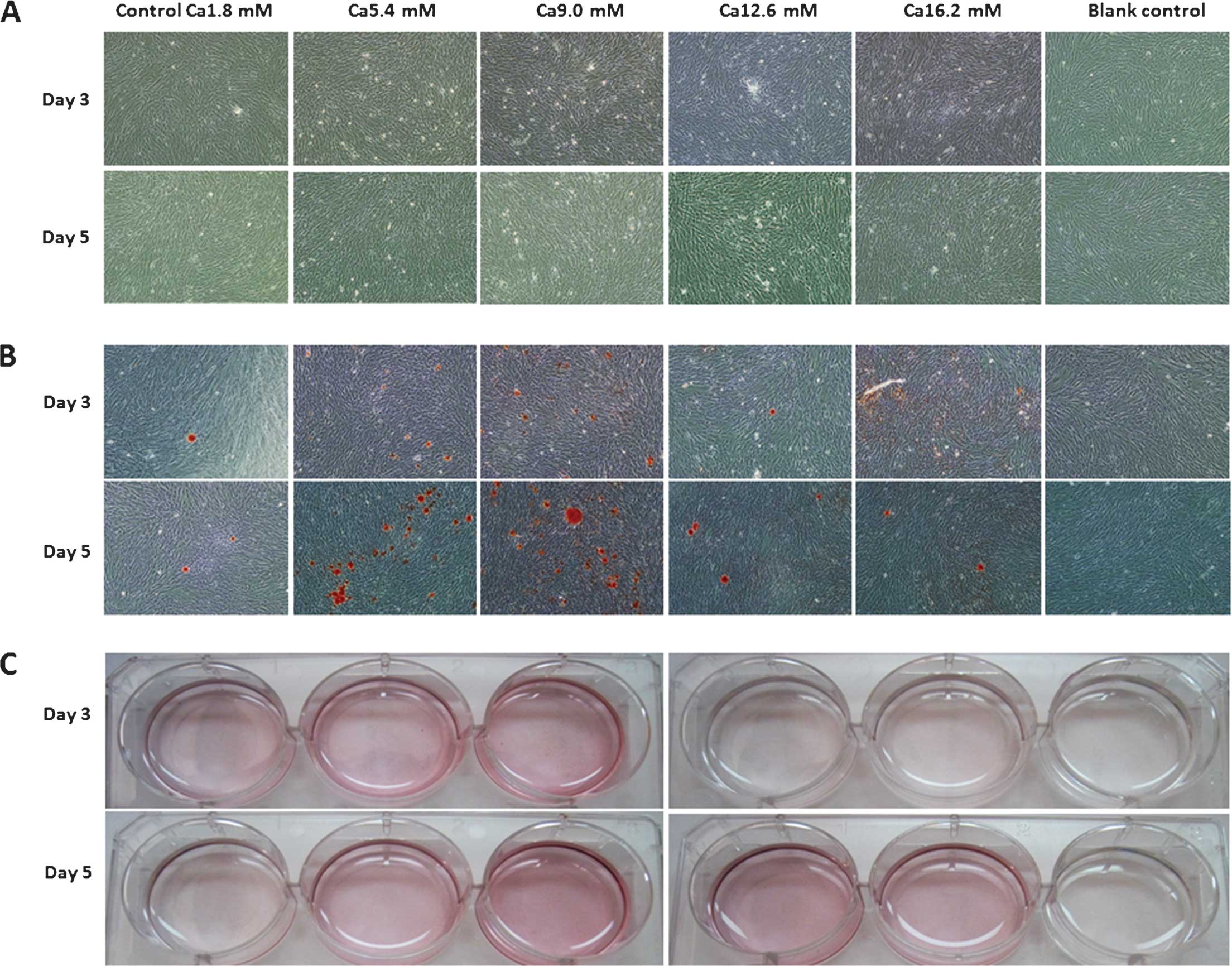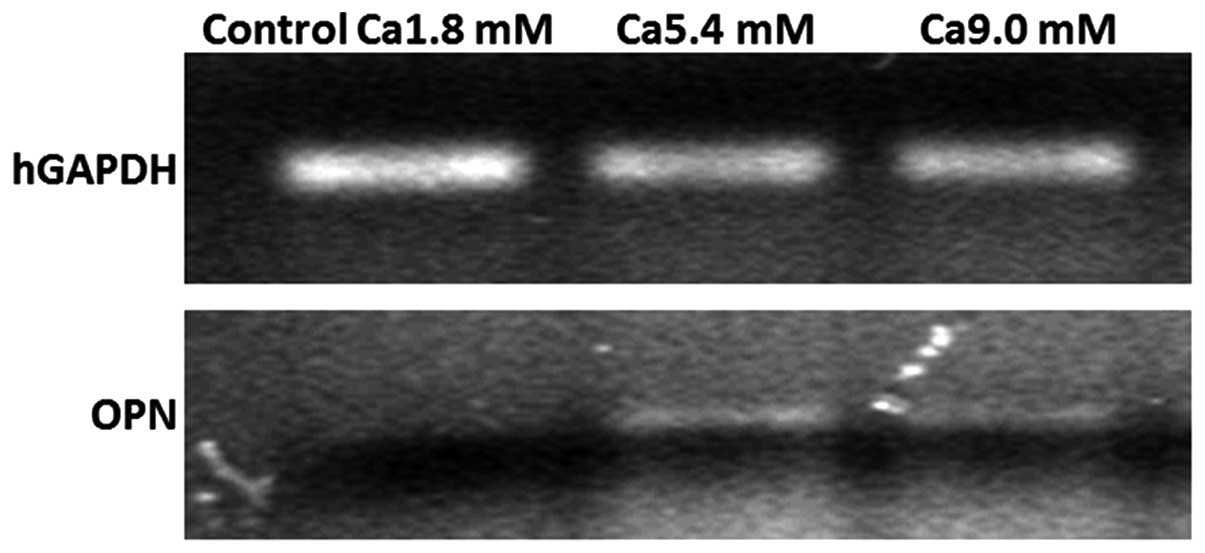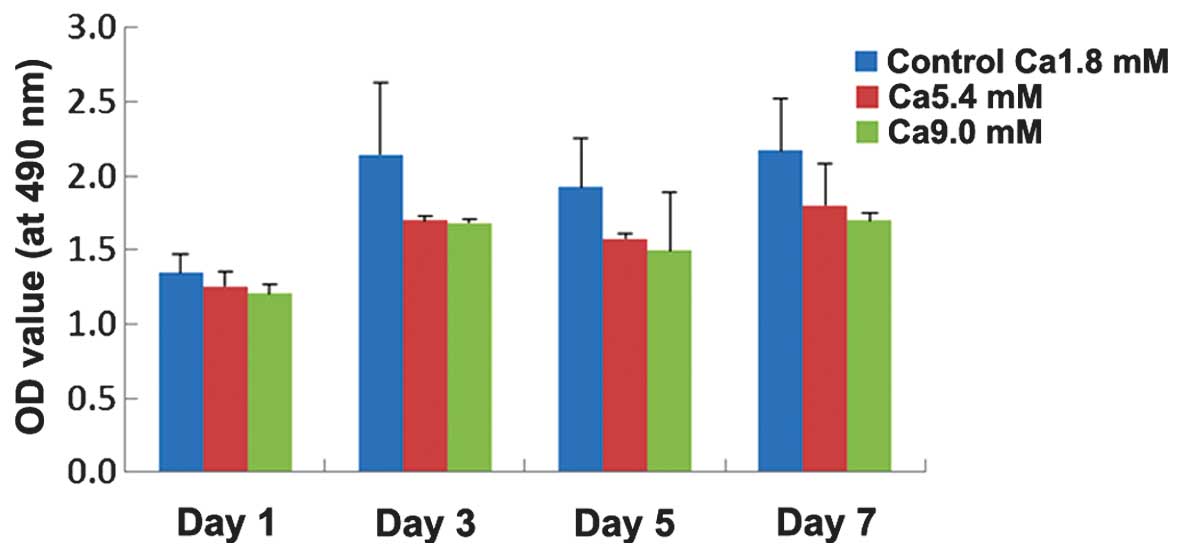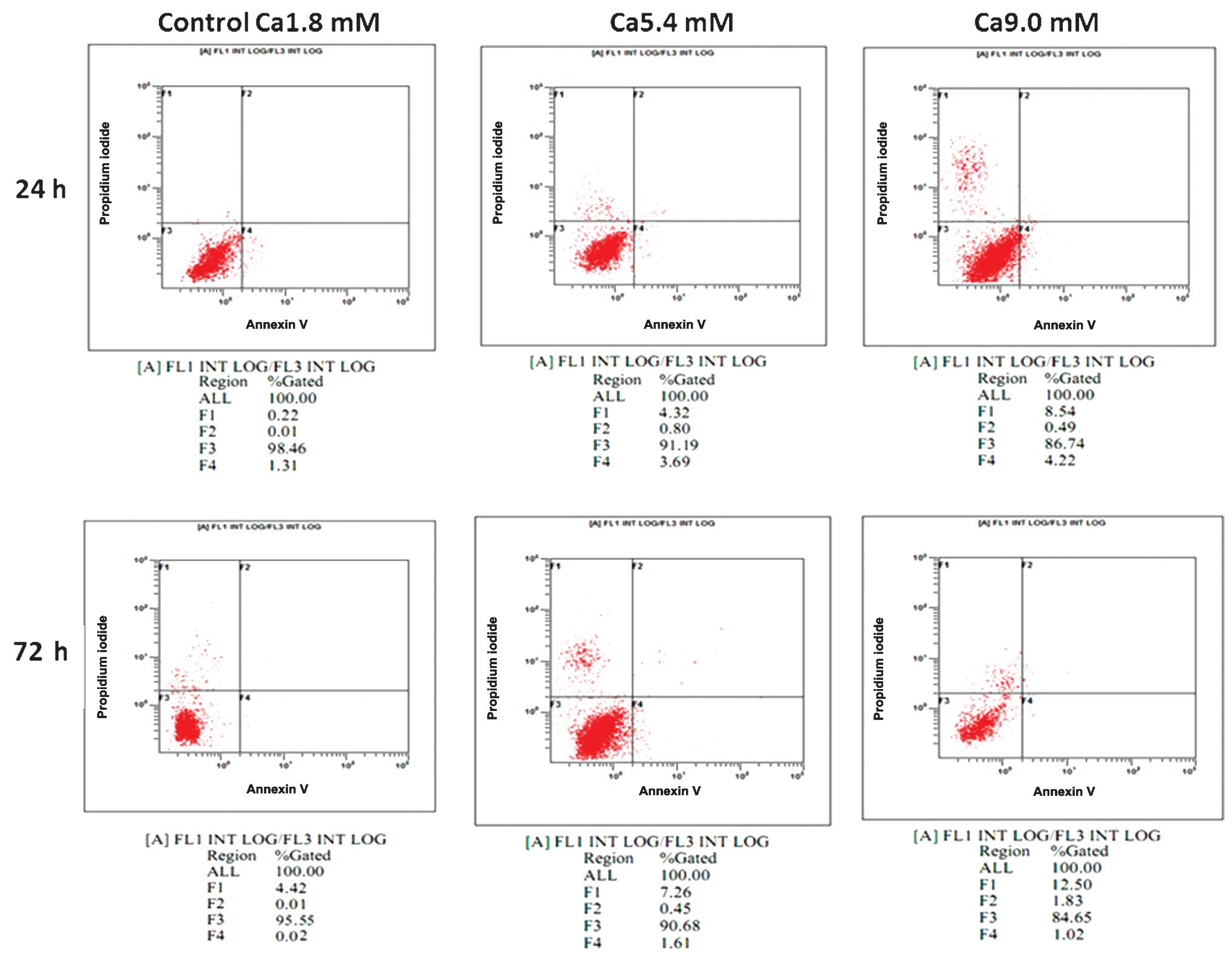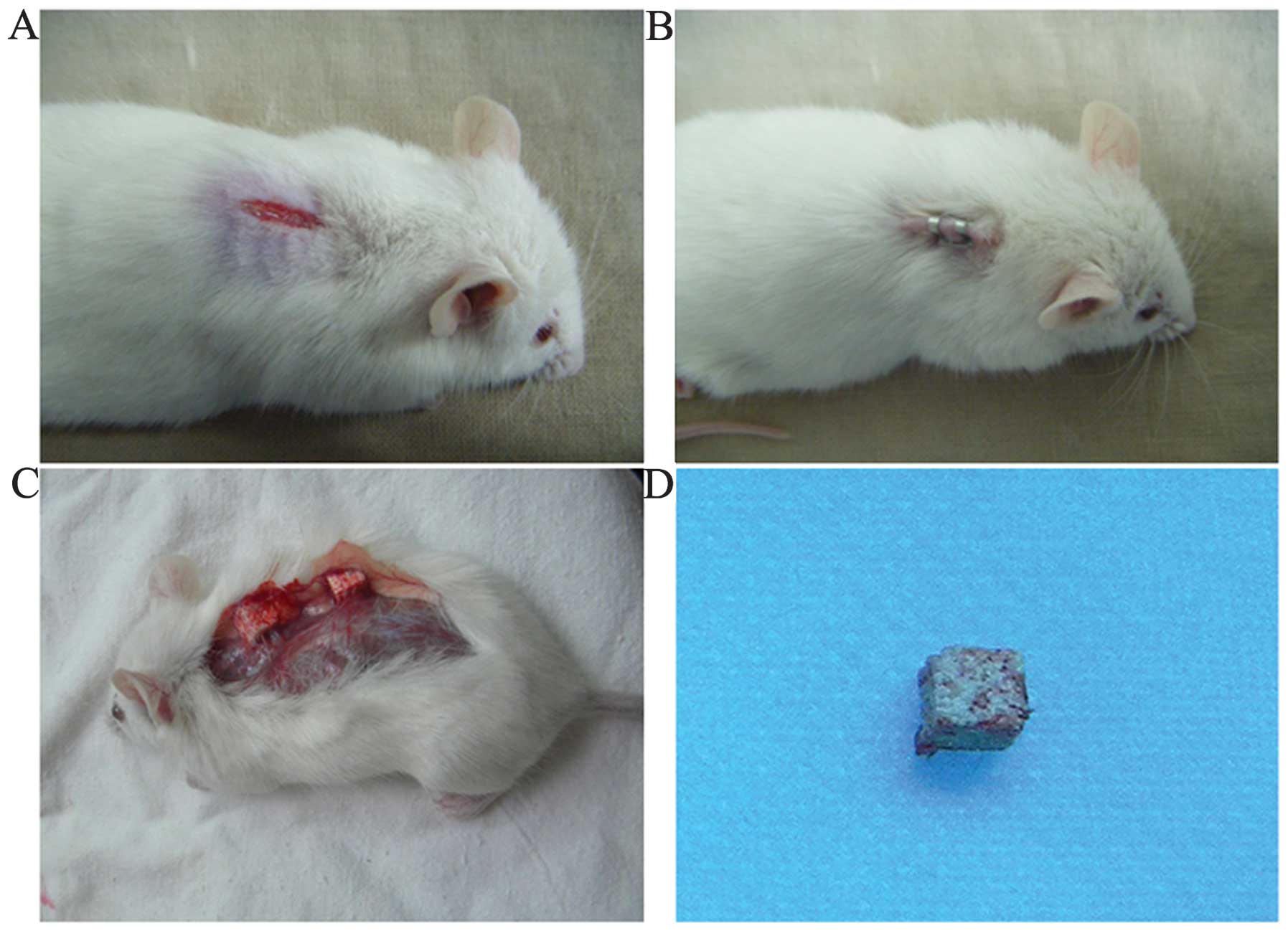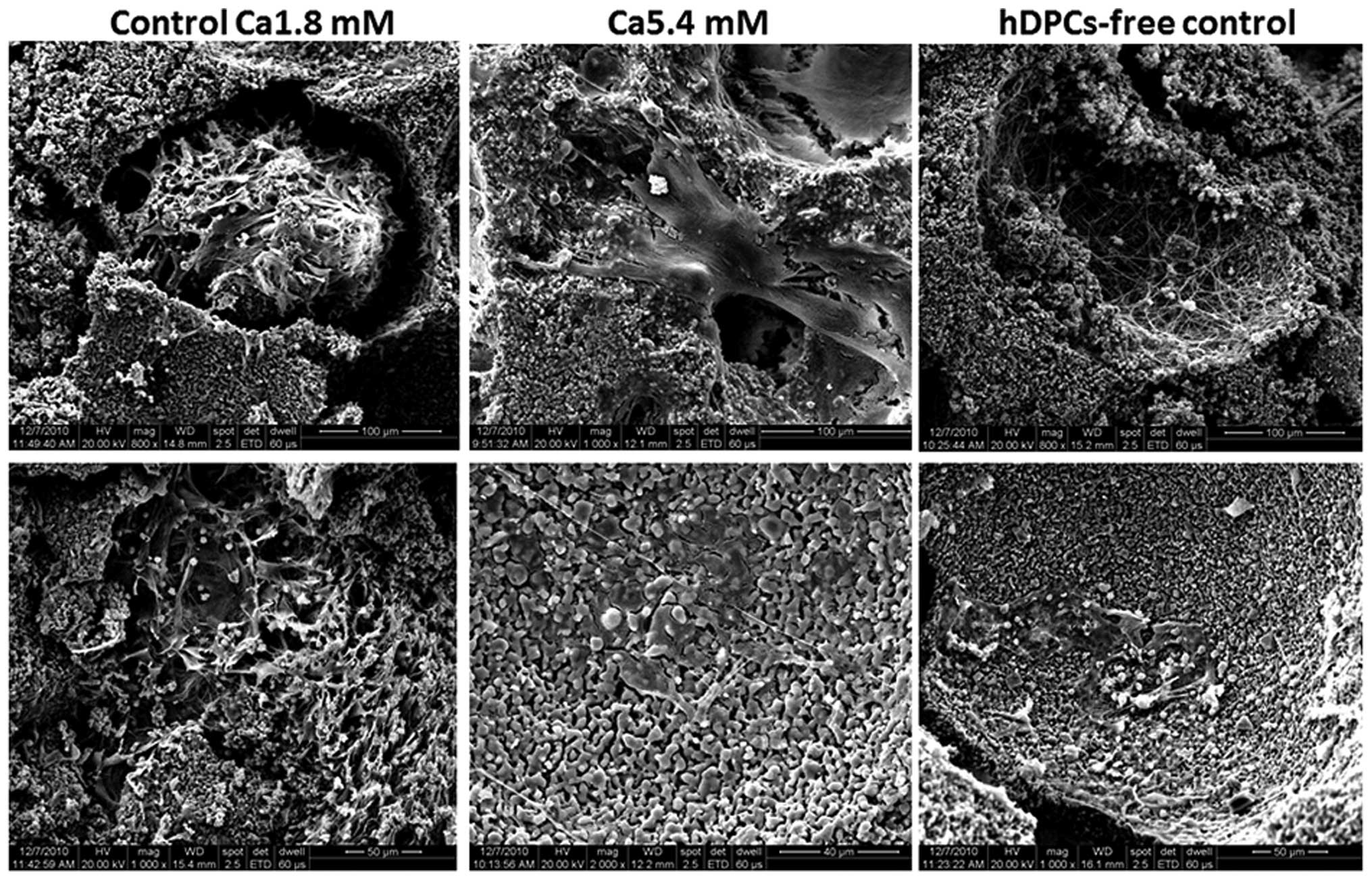|
1
|
Opal S, Garg S, Dhindsa A and Taluja T:
Minimally invasive clinical approach in indirect pulp therapy and
healing of deep carious lesions. J Clin Pediatr Dent. 38:185–192.
2014. View Article : Google Scholar : PubMed/NCBI
|
|
2
|
Mattos J, Soares GM and Ribeiro Ade A:
Current status of conservative treatment of deep carious lesions.
Dent Update. 41:452–454. 4562014.PubMed/NCBI
|
|
3
|
Kawashima N: Characterisation of dental
pulp stem cells: A new horizon for tissue regeneration. Arch Oral
Biol. 57:1439–1458. 2012. View Article : Google Scholar : PubMed/NCBI
|
|
4
|
Hilton TJ, Ferracane JL, Mancl L, Baltuck
C, Barnes C, Beaudry D, Shao J, Lubisich E, Gilbert A and Lowder L:
Northwest Practice-based Research Collaborative in Evidence-based
Dentistry (NWP): Comparison of CaOH with MTA for direct pulp
capping: A PBRN randomized clinical trial. J Dent Res. 92(Suppl 7):
16S–22S. 2013. View Article : Google Scholar
|
|
5
|
Aguilar P and Linsuwanont P: Vital pulp
therapy in vital permanent teeth with cariously exposed pulp: A
systematic review. J Endod. 37:581–587. 2011. View Article : Google Scholar : PubMed/NCBI
|
|
6
|
Hilton TJ: Keys to clinical success with
pulp capping: A review of the literature. Oper Dent. 34:615–625.
2009. View
Article : Google Scholar : PubMed/NCBI
|
|
7
|
Bjørndal L and Mjör IA: Pulp-dentin
biology in restorative dentistry. Part 4: Dental caries -
characteristics of lesions and pulpal reactions. Quintessence Int.
32:717–736. 2001.
|
|
8
|
Sangwan P, Sangwan A, Duhan J and Rohilla
A: Tertiary dentinogenesis with calcium hydroxide: A review of
proposed mechanisms. Int Endod J. 46:3–19. 2013. View Article : Google Scholar
|
|
9
|
Paranjpe A, Zhang H and Johnson JD:
Effects of mineral trioxide aggregate on human dental pulp cells
after pulp-capping procedures. J Endod. 36:1042–1047. 2010.
View Article : Google Scholar : PubMed/NCBI
|
|
10
|
Jefferies SR: Bioactive and biomimetic
restorative materials: A comprehensive review. Part I. J Esthet
Restor Dent. 26:14–26. 2014. View Article : Google Scholar
|
|
11
|
Chen L, Shen H and Suh BI: Bioactive
dental restorative materials: A review. Am J Dent. 26:219–227.
2013.
|
|
12
|
Duarte MA, Martins CS, de Oliveira Cardoso
Demarchi AC, de Godoy LF, Kuga MC and Yamashita JC: Calcium and
hydroxide release from different pulp-capping materials. Oral Surg
Oral Med Oral Pathol Oral Radiol Endod. 104:e66–e69. 2007.
View Article : Google Scholar : PubMed/NCBI
|
|
13
|
Mizuno M and Banzai Y: Calcium ion release
from calcium hydroxide stimulated fibronectin gene expression in
dental pulp cells and the differentiation of dental pulp cells to
mineralized tissue forming cells by fibronectin. Int Endod J.
41:933–938. 2008. View Article : Google Scholar
|
|
14
|
Cohenca N, Paranjpe A and Berg J: Vital
pulp therapy. Dent Clin North Am. 57:59–73. 2013. View Article : Google Scholar
|
|
15
|
An S, Gao Y, Ling J, Wei X and Xiao Y:
Calcium ions promote osteogenic differentiation and mineralization
of human dental pulp cells: Implications for pulp capping
materials. J Mater Sci Mater Med. 23:789–795. 2012. View Article : Google Scholar
|
|
16
|
Qin C, Baba O and Butler WT:
Post-translational modifications of sibling proteins and their
roles in osteogenesis and dentinogenesis. Crit Rev Oral Biol Med.
15:126–136. 2004. View Article : Google Scholar : PubMed/NCBI
|
|
17
|
An S, Ling J, Gao Y and Xiao Y: Effects of
varied ionic calcium and phosphate on the proliferation, osteogenic
differentiation and mineralization of human periodontal ligament
cells in vitro. J Periodontal Res. 47:374–382. 2012. View Article : Google Scholar
|
|
18
|
Huitema LF and Vaandrager AB: What
triggers cell-mediated mineralization. Front Biosci. 12:2631–2645.
2007. View Article : Google Scholar
|
|
19
|
Brylka L and Jahnen-Dechent W: The role of
fetuin-A in physiological and pathological mineralization. Calcif
Tissue Int. 93:355–364. 2013. View Article : Google Scholar : PubMed/NCBI
|
|
20
|
Landis WJ and Jacquet R: Association of
calcium and phosphate ions with collagen in the mineralization of
vertebrate tissues. Calcif Tissue Int. 93:329–337. 2013. View Article : Google Scholar : PubMed/NCBI
|
|
21
|
Maeno S, Niki Y, Matsumoto H, Morioka H,
Yatabe T, Funayama A, Toyama Y, Taguchi T and Tanaka J: The effect
of calcium ion concentration on osteoblast viability, proliferation
and differentiation in monolayer and 3D culture. Biomaterials.
26:4847–4855. 2005. View Article : Google Scholar : PubMed/NCBI
|
|
22
|
Hunter GK: Role of osteopontin in
modulation of hydroxyapatite formation. Calcif Tissue Int.
93:348–354. 2013.Review. View Article : Google Scholar : PubMed/NCBI
|
|
23
|
Hirota S, Asada H, Kohri K, Tsukamoto Y,
Ito A, Yoshikawa K, Xu Z, Nomura S and Kitamura Y: Possible role of
osteopontin in deposition of calcium phosphate in human
pilomatricomas. J Invest Dermatol. 105:138–142. 1995. View Article : Google Scholar : PubMed/NCBI
|
|
24
|
Hamamoto S, Nomura S, Yasui T, Okada A,
Hirose M, Shimizu H, Itoh Y, Tozawa K and Kohri K: Effects of
impaired functional domains of osteopontin on renal crystal
formation: Analyses of OPN transgenic and OPN knockout mice. J Bone
Miner Res. 25:2712–2723. 2010.
|
|
25
|
Magne D, Julien M, Vinatier C,
Merhi-Soussi F, Weiss P and Guicheux J: Cartilage formation in
growth plate and arteries: From physiology to pathology. BioEssays.
27:708–716. 2005.Review. View Article : Google Scholar : PubMed/NCBI
|
|
26
|
Ni S, Chang J, Chou L and Zhai W:
Comparison of osteoblast-like cell responses to calcium silicate
and tricalcium phosphate ceramics in vitro. J Biomed Mater Res B
Appl Biomater. 80:174–183. 2007. View Article : Google Scholar
|
|
27
|
Bernstein A, Nöbel D, Mayr HO, Berger G,
Gildenhaar R and Brandt J: Histological and histomorphometric
investigations on bone integration of rapidly resorbable calcium
phosphate ceramics. J Biomed Mater Res B Appl Biomater. 84:452–462.
2008. View Article : Google Scholar
|
|
28
|
McCullen SD, Zhan J, Onorato ML, Bernacki
SH and Loboa EG: Effect of varied ionic calcium on human
adipose-derived stem cell mineralization. Tissue Eng Part A.
16:1971–1981. 2010. View Article : Google Scholar : PubMed/NCBI
|















